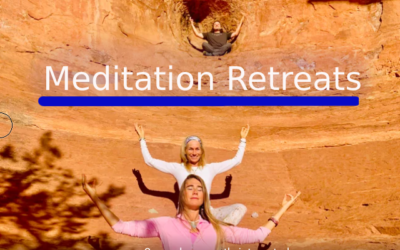Introduction:
In today's fast-paced world, stress seems to be an unwelcome companion on our journey through life. Whether it's work deadlines, family responsibilities, or the demands of daily living, stress can take a toll on our mental and physical well-being. But here's the good news: there are powerful stress reduction techniques that can help you find calm amidst the chaos. In this blog post, we'll explore 11 effective stress reduction techniques, each with its unique approach and benefits. With these techniques in your toolkit, you can transform the way you respond to stress and lead a more peaceful, balanced life.
Deep Breathing
One of the simplest yet most effective stress reduction techniques is deep breathing. By inhaling slowly and deeply through your nose and exhaling through your mouth, you can calm your nervous system and reduce stress levels. Deep breathing is a practice that can be done anytime, anywhere, making it a valuable tool in your stress management arsenal.
Mindfulness Meditation
Mindfulness meditation invites you to embrace the present moment without judgment. By focusing your attention on your breath, bodily sensations, or the sounds around you, you can increase your awareness and reduce anxiety. This practice can help you develop a greater sense of peace and resilience in the face of stress.
Progressive Muscle Relaxation
Progressive muscle relaxation is a technique where you systematically tense and then release muscle groups in your body. This process helps you become aware of and release physical tension, promoting deep relaxation. It's particularly effective when stress manifests as bodily discomfort or tension.
Yoga
Yoga combines physical postures, breathing exercises, and meditation to promote relaxation and reduce stress. Whether you're a beginner or an experienced yogi, practicing yoga regularly can improve flexibility, reduce muscle tension, and enhance your overall sense of well-being.
Cognitive Behavioral Therapy (CBT)
Cognitive Behavioral Therapy (CBT) is a highly effective therapeutic approach for managing stress. It helps individuals identify and challenge negative thought patterns and beliefs, replacing them with more rational and positive ones. Through CBT, you can gain valuable insights into the ways your thoughts impact your stress levels and learn techniques to change those patterns.
Guided Imagery
Guided imagery involves visualization of peaceful and calming scenes or scenarios. By immersing yourself in these mental images, you can relax your mind and reduce stress. Guided imagery is often used in meditation and can transport you to a tranquil mental space, even in the midst of a hectic day.
Exercise
Physical activity is a powerful stress-buster. Engaging in regular exercise, whether it's jogging, swimming, or dancing, releases endorphins—natural mood lifters. Exercise not only reduces stress but also contributes to better overall mental and physical health.
Time Management
Effective time management can significantly reduce stress levels. By organizing tasks, setting priorities, and creating a structured daily routine, you can prevent the feeling of being overwhelmed by responsibilities.
Journaling
Writing down your thoughts and emotions can offer emotional release and clarity. Journaling provides a safe space to express your feelings, gain perspective on stressors, and identify patterns in your thought processes.
Mindful Eating
Mindful eating involves paying full attention to the act of eating. By savoring each bite and being present during meals, you can improve your relationship with food, reduce stress-related overeating, and foster healthier eating habits.
Mindfulness Meditation
Mindfulness meditation is an excellent starting point for beginners. It involves paying non-judgmental attention to the present moment. To begin, find a quiet space, sit comfortably, and focus on your breath. When thoughts arise, gently bring your attention back to your breath. Start with just a few minutes and gradually extend your practice.
| Stress Reduction Technique | Description | Benefits |
|---|---|---|
| Deep Breathing | Inhale and exhale deeply and slowly | Calms the nervous system, reduces stress |
| Mindfulness Meditation | Focus on the present without judgment | Increases awareness, reduces anxiety |
| Progressive Muscle Relaxation | Tense and release muscle groups | Relieves physical tension, promotes relaxation |
| Yoga | Physical postures, breathing, meditation | Reduces stress, improves flexibility |
| Cognitive Behavioral Therapy (CBT) | Identify and challenge negative thoughts | Alters thought patterns, reduces anxiety |
| Guided Imagery | Visualization of peaceful scenes | Relaxes the mind, reduces stress responses |
| Exercise | Engage in physical activity regularly | Releases endorphins, reduces stress hormones |
| Time Management | Organize tasks and prioritize | Reduces stress from feeling overwhelmed |
| Journaling | Write down thoughts and emotions | Offers emotional release, clarity |
| Mindful Eating | Paying full attention while eating | Improves relationship with food, reduces stress |
| Social Support | Seek support from friends and family | Provides emotional relief, reduces isolation |























